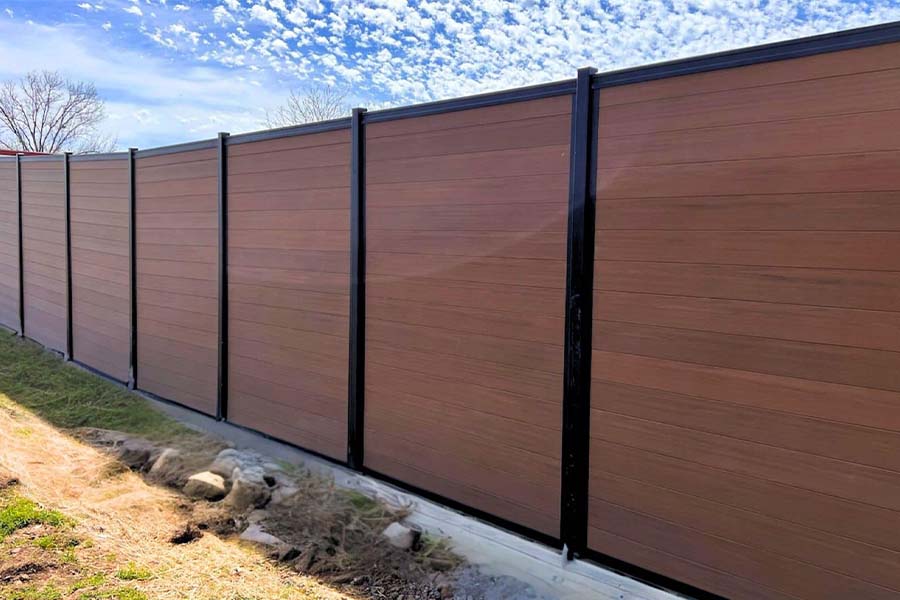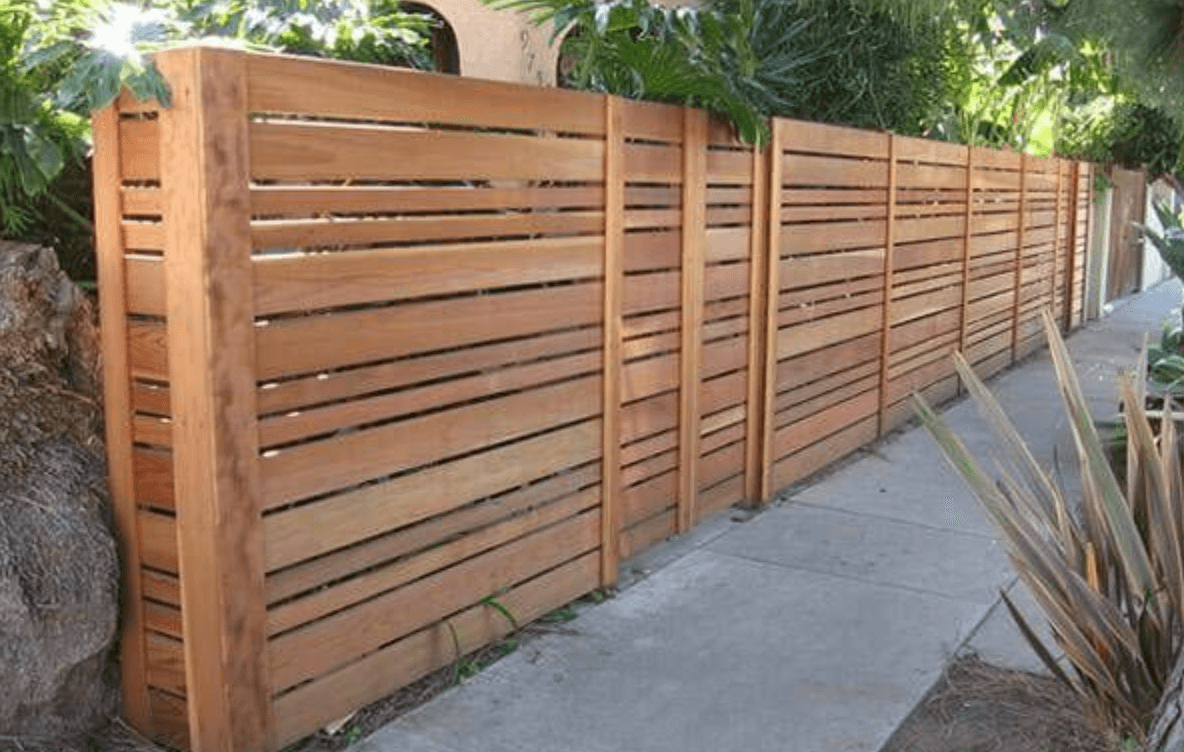All Categories
Featured

When selecting a fencing for your building, resilience is a crucial factor. Wrought iron has long been admired for its stamina and enduring power, yet how does it compare to various other prominent secure fencing products like chain, vinyl, and timber web link? Allow's explore the sturdiness of wrought iron and compare it to these other options.
- Wrought Iron: Ageless Stamina and Sturdiness. A properly maintained functioned iron fencing can last for decades, with many enduring well over 50 years. The stamina of functioned iron enables it to hold up against extreme weather problems, such as hefty winds, rain, and snow.
Wrought Iron vs. Various Other Materials:
Timber Fencing: While wood offers a natural, visual charm, it is at risk to a variety of concerns that jeopardize its longevity. Timber can warp, rot, or come to be ravaged with termites. These troubles call for routine maintenance, including staining, securing, and bug control. Over time, wood may require to be replaced or fixed more frequently than functioned iron. Plastic Fence: Plastic is a low-maintenance option to wood but still doesn't match the resilience of functioned iron. While vinyl is resistant to decaying and insect damages, it can end up being brittle or fracture in extremely chilly temperatures, especially in areas with extreme winters months. In locations of high warm, vinyl can likewise warp gradually. Chain Web Link Fencing: Chain web link is a durable, affordable fencing option, however it does not provide the exact same protection or strength as functioned iron. While it can last for decades, it is prone to corrosion in seaside or moist atmospheres. Wrought iron, with appropriate upkeep, gives premium security from deterioration and environmental damages. 2. Longevity: Wrought Iron vs. Various other Products. Wrought iron has a remarkable life-span, specifically when compared to materials like timber or vinyl. A properly maintained wrought iron fence can last as much as 50 years or even more, and sometimes, it can last over 100 years. The trick to maintaining this durability is safeguarding the metal from corrosion via normal maintenance, such as using rust-resistant layers or fresh paint.
On the other hand:
Timber Fence: Wood fencings typically last in between 10 to 20 years. They are extra susceptible to weathering, deteriorating, and bug damages, calling for constant repair services or substitutes to preserve their capability and look. Vinyl Secure fencing: Plastic fences typically last 20 to 30 years before signs of maturing such as fading or cracking emerged. While low-maintenance, vinyl does not use the same longevity as functioned iron. Chain Web Link Secure Fencing: Chain link fencings usually last 20 to three decades, relying on climate and treatment. However, they can rust and wear away in time, particularly if the safety finish uses off. 3. Upkeep: Wrought Iron's Resilience. Wrought iron secure fencing needs some interest to preserve its appeal and stamina, mostly to shield versus rust. In areas with high moisture or salty air, wrought iron might establish rust places, but with routine cleaning, rust therapy, and a fresh layer of paint, it can preserve its beautiful problem for years. A well-maintained wrought iron fence can need marginal upkeep after the preliminary protective layer is applied.
In contrast:

Wood Fence: Wood requires continuous maintenance, consisting of sealing, staining, and treating for insects, to guarantee it stays eye-catching and functional. Wood is also more at risk to harm from the aspects, such as rot and mold, and may require to be changed extra often. Plastic Fence: Plastic is relatively low-maintenance and just requires occasional cleansing. Plastic is susceptible to breaking in severe temperatures, which can lead to costly repair work or substitute. Chain Web Link Fencing: Chain web link is easy to maintain, requiring bit greater than occasional cleansing. Nonetheless, the material is prone to rust if not effectively treated, particularly in damp or coastal environments. In time, the galvanization of chain web link can diminish, bring about corrosion and decreased durability. 4. Protection: Stamina and Resistance. Wrought iron is usually preferred for its stamina and safety and security. Its solid and durable building and construction makes it an exceptional choice for secure fencing that shields your building from invasion. Wrought iron fences are hard to reduce or climb, using exceptional security contrasted to chain, timber, and plastic web link.
Wrought Iron vs. Other Products:
Wood Fencing: Timber fences can be easily cut or climbed, making them much less safe than wrought iron. While they provide a modest level of privacy and defense, they are not perfect for high-security needs. Vinyl Fencing: Plastic fencings are hard to climb up and supply a respectable level of personal privacy. They can be damaged by powerful impacts, and unlike functioned iron, vinyl may not be as durable under pressure. Chain Web Link Fence: Wire mesh fence are generally used for safety and security functions, however they can be quickly reduced via with correct devices. While they provide a visual obstacle, they use less defense than wrought iron, especially when it comes to protecting against unapproved gain access to. 5. Verdict: Wrought Iron is the Clear Winner for Longevity. When it comes to longevity, wrought iron stands out as the premium selection. Its long life, strength, and very little maintenance needs make it an ideal option for home owners trying to find a resilient, safe and secure fence. While other products like plastic, timber, and chain link may provide lower first costs or simpler setup, they do not offer the same degree of resilience that wrought iron does.
If you're looking for a fencing that can endure the examination of time and the aspects, while adding a touch of elegance and protection to your home, wrought iron is the excellent product for you. With proper care, a wrought iron fencing can offer your residential property for years ahead, maintaining its strength and appearance through the years.
Latest Posts
Uncover Montclare Auto Repair’s Leading Auto Repairs and Why Drivers Rely On Them
Published en
1 min read
Explore Premier Auto Repair Services in Chicago – Keep Your Car Running Smoothly
Published en
1 min read
Find Cost-Effective Auto Repairs with Montclare’s Limited-Time Service Specials
Published en
1 min read
More
Latest Posts
Uncover Montclare Auto Repair’s Leading Auto Repairs and Why Drivers Rely On Them
Published May 31, 25
1 min read
Explore Premier Auto Repair Services in Chicago – Keep Your Car Running Smoothly
Published May 27, 25
1 min read
Find Cost-Effective Auto Repairs with Montclare’s Limited-Time Service Specials
Published May 22, 25
1 min read